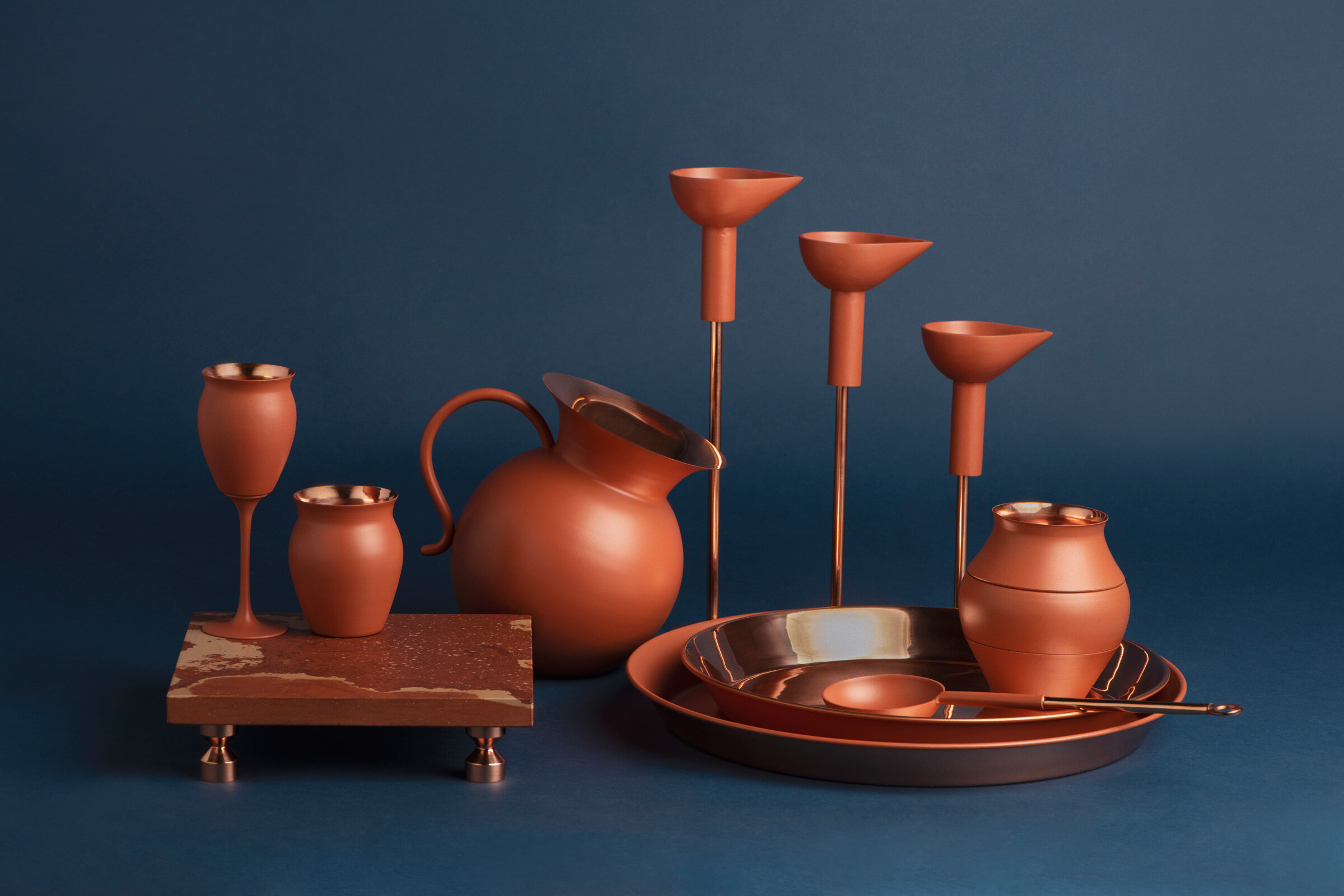Getting to Know Gunjan Gupta
New Delhi-based furniture designer Gunjan Gupta marries Indian craft with contemporary furniture design
When Gunjan Gupta was growing up in Mumbai, her house-proud mother loved to cook and entertain. ‘I think this was my first interface with my creative side,’ Gupta says. ‘My mother allowed me to make creative decisions very early on, which gave me confidence in my ideas.’
During her early career as a designer, Gupta worked alongside interior designer Varsha Desai, getting insight into the world of bespoke furniture and customised interiors. Later, she moved to New Delhi and discovered the world of Indian crafts and ateliers. As her career took shape, Gupta realised that contemporary furniture design was lacking in India, and that her home country was practically absent from the global design conversation. This realisation led her to studying a master’s at Central Saint Martins in London. ‘It was a two-year journey that revealed many unknown facts about the state of craft in India and empowered me with a vision for the future,’ she says.
While researching Indian crafts and working with craftspeople, Gupta came across the unexplored potential of bringing these skills into contemporary product design. In 2006, she founded Wrap, a New Delhi-based interior and product design studio, with the aim of reviving India’s traditional crafts and positioning them at the heart of the contemporary home. From carpet weaving to pottery and metalwork, her work challenges the idea that traditional crafts are incompatible with modern interiors.
‘The first craft I worked on while doing my master’s was the ancient throne-decorating technique of silver wrapping, which can reveal a piece’s past prestige and current decay,’ says Gupta. ‘I considered this idea of wrapping furniture in the context of 21st-century design and named my studio after this philosophy.’
With a design approach that balances ‘concept, craft and context’, Gupta works with craftspeople at her New Delhi studio — a close collaboration that allows her and her team to ensure quality control. Her design approach is also shaped by the various collaborations she’s done with international brands. One of her masterpieces, the Bicycle Throne — a chair made from various bicycle parts — illustrates her interest in the use of recycled materials, which arose from a 2008 collaboration with Dutch design collective Droog. ‘They pushed me to think about India’s cultural potential internationally and made me push the issue of quality much harder,’ Gupta says.
The designer has also established her first furniture line, Gunjan Gupta Collectible Design. ‘The notion of collectible design didn’t really exist in this part of the world. I was fortunate enough to have been given several opportunities to exhibit my work internationally and soon galleries and curators became interested. That’s how Gunjan Gupta Collectible Design was born,’ the designer explains.
In 2019, Gupta launched IKKIS, a second brand focusing on functional and affordable products. The IKKIS range includes a collection of traditional Indian wares that have been reimagined for the 21st century. ‘My vision for design has always been to democratise it. I wanted to design contemporary Indian souvenirs — small yet powerful objects that highlight the best of my amazing country and showcase its craftspeople,’ she says.
Text / Nina Milhaud
Images / Wrap Art & Design
















